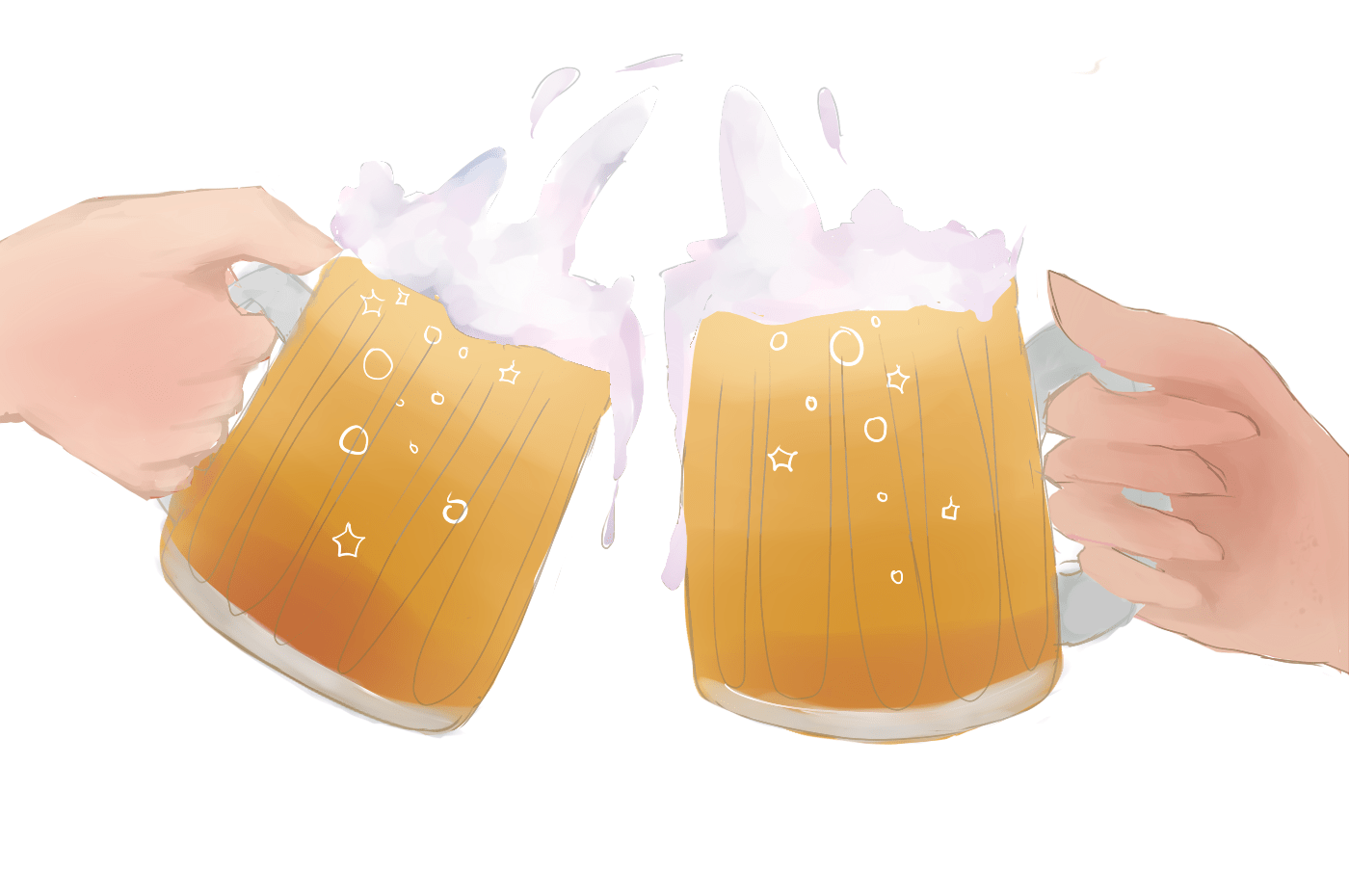With midterms right around the corner and classes proceeding at full pace, events like Carnival, E-week, and Science Games seem distant. While your onesie might be neatly stored away and the lingering smell of beer washed off of your clothes, the impacts of these events on participants’ health can linger. Following periods of intense drinking, young adults have been known to experience anxiety, have trouble performing academically, and face an increased risk of developing a dependency on alcohol. McGill drinking events may feel like a rite of passage to many; however, their existence fosters an environment that pushes students into depending on alcohol for enjoyment.
The organizers of competitions among faculties and departments often promote these events by supporting charitable causes: For example, the Management Undergraduate Society hosts Carnival to raise money for cancer research. While many students participate in races, auctions, and keggers under the premise of funding cancer research, hundreds of them inadvertently harm their own bodies through binge-drinking and substance abuse. In the hope of sharing an unforgettable week with their peers, students reinforce each others’ inclinations to drink, resulting in a conditioned association between social acceptance and over-consumption. Although drinking feels like a routine part of McGill’s student culture, participants should familiarize themselves with the long-term effects of alcohol abuse, including liver and heart damage, malnutrition, and, ironically, given Carnival’s charitable cause of choice, an increased risk of developing cancer.
The coughs and sniffles heard in libraries and lecture halls serve as ominous reminders of how McGill’s work-hard-play-hard mentality continues to plague students. Despite the first couple of weeks of the semester bearing witness to some of the McGill clinic’s longest lines, students continue to sign up for events that often end in their contracting the flu, STIs, and lasting health impacts. With illness being a corequisite for these events, it’s curious that their popularity does not falter.
While drinking events are more prevalent in the first weeks of the semester, they are not limited to January. There is seldom a Thursday night in Montreal when students aren’t lined up on St. Laurent—drunk, cold, and dreading the next morning’s hangover. Beyond the façade of good times, the pressure to drink in university can fuel a dependence on alcohol that can endure well after graduation and take a toll on their mental and physical health.
By now, students are aware of the short and long-term consequences of binge-drinking. Yet, in an intense academic environment, they still choose to forget their stress for a few hours and feel the confidence and ease that is only found at the bottom of a bottle. With an endless stream of Snapchats and Instagram stories documenting the night, the fear of missing out encourages students to say yes to the next drink. Although it’s easy to blame the lasting hangovers on youth, it is time to realize that being a university student doesn’t preclude alcoholism. Students shouldn’t feel embarrassed or ashamed in seeking help to curb their drinking habits. The university offers services through the McGill Counselling Services to students struggling with substance abuse.
As Fac-O approaches, students should consider whether binge-drinking for five days is something that they want to do or whether it’s something they feel that they can’t say no to. Alcohol isn’t what makes you fun, and no one will remember the time you skipped a Thursday night— or even whole week—of drinking.








